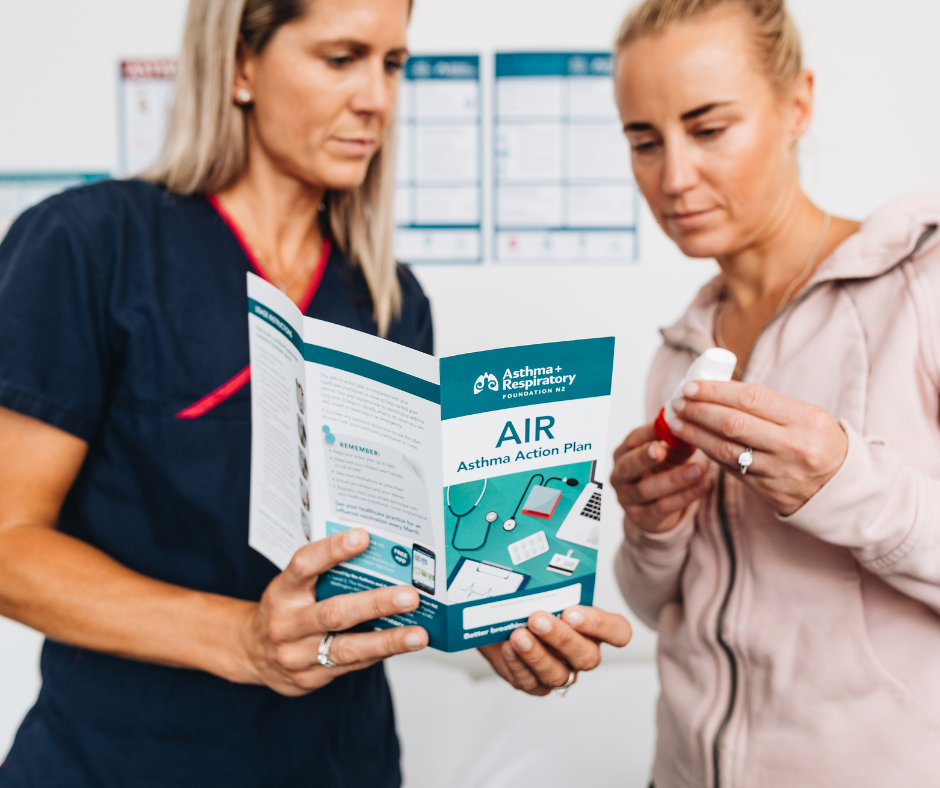Many people with respiratory conditions dread the arrival of the colder months, as for some it can mean the beginning of worsening symptoms or flare ups. There are a number of reasons why respiratory conditions can get worse over winter.
- Colds, flus and chest infections are more common over winter. These illnesses can inflame and irritate your airways and make your respiratory symptoms worse.
- Cold, dry air can irritate your airways and cause you to produce more mucus, which can make conditions, like asthma, feel worse.
- Over winter, we also spend a lot more time indoors. The quality of the air in our homes can affect our respiratory conditions. If your home is cold, damp or poorly ventilated, you might find your symptoms getting worse.
Fortunately, there are things you can do now, to help yourself stay well this winter.
Ensure your condition is well-controlled
Poorly-controlled respiratory conditions will only get worse over winter, if you are exposed to winter illnesses and cold, damp or polluted indoor air. You can take steps to get your condition under control now, so when winter hits you are better prepared. If you are unsure if your asthma is well-controlled, take the asthma control test.
Before winter, have a check-up with your healthcare practitioner. Tell them about your symptoms and how regularly you are using your reliever inhalers. Ask them to check your inhaler technique, and to update your asthma or COPD action plan. If you don’t have an action plan, ask them to complete one for you, so you have the information you need to better manage your condition. Action plans are free to download or print from this website.
Almost all people with asthma, with the exception of some children, will be prescribed a preventer inhaler (a medication that treats inflammation in the airways, the underlying cause of asthma); If you have be told that you should use it every day, try not to miss a day. Often people may be tempted to stop this medication if they feel well, but this can cause your condition to get worse.

Check your inhaler technique. Studies have shown that up to 80% of people don’t know how to use their inhaler properly. Without a good inhaler technique, you will not receive the correct dose of medication into your lungs. Check with your healthcare practitioner, or watch one of these videos from the National Asthma Council Australia to learn the best way to use your inhaler.
Use a spacer when using a metered dose (“puffer”) inhaler. Spacers help to deliver more medicine directly into the lungs (rather than the mouth and throat). They can improve the effectiveness of inhalers by up to 50%, and are available free of charge from your healthcare practice or local asthma society.
Use an action plan. Action plans are written or digital plans completed by your healthcare practitioner with clear advice on how to manage your condition, and what to do if your symptoms start to get worse. You can save these plans to your phone or device, so it’s always with you, email it to others or keep a version at home, work or school. There are Asthma Action Plans and COPD Action Plans available for free here.

Keep up to date with vaccinations
Avoid the flu and COVID-19, by keeping up to date with vaccinations and boosters. Flu vaccinations are free for people with long-term respiratory conditions, those with asthma using a preventer inhaler, people over 65 years of age, all children aged six months to 12 years, and Māori and Pacific peoples aged 55 to 64 years. Find out more about flu vaccines here and the COVID-19 boosters here.
Keep flattening that curve
Another important way to keep yourself well this winter is to continue with all the common sense ‘flattening the curve’ precautions we followed to reduce the spread of COVID-19. These precautions will help you avoid any type of virus. They include regularly washing your hands, coughing and sneezing into your elbow, wearing masks on public transport or in crowded public spaces and staying home when you are unwell.
Improve the health of your home
Warm, dry, well-ventilated homes are essential to good respiratory health, and this is especially true over winter. There are some cost-effective, practical things you can do to improve the health of your home. There are also a number of community-based services that can provide funding for insulation and heating installation. If you are a renter, Consumer NZ has some good advice on your right to a healthy home and things you can do.
Our top tips are:
- keep your home smoke and vape free
- replace any open fires or unflued gas heaters with less polluting heating options
- crack open your windows for 10 – 15 minutes every day to allow fresh air to replace stale indoor air
- use extraction fans in the kitchen while cooking and the bathroom while showering
- remove condensation from windows
- remove mould using vinegar and water at a ratio of (80/20)

Other useful links to Healthy Home services:
Te Whatu Ora Healthy Homes Initiative (scroll down for providers)
Warmer Kiwi Homes
GenLess
Habitat for Humanity
Community Energy Action Trust (Canterbury/West Coast)






